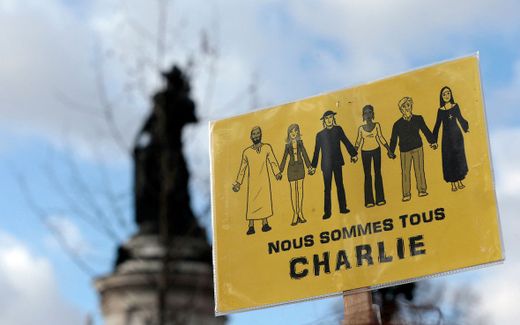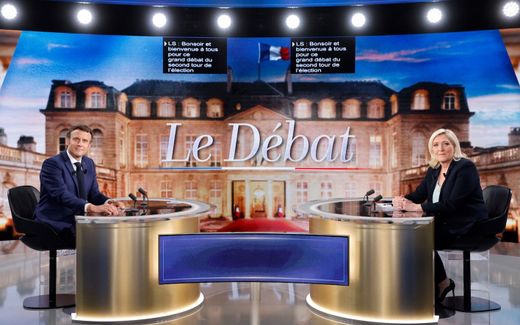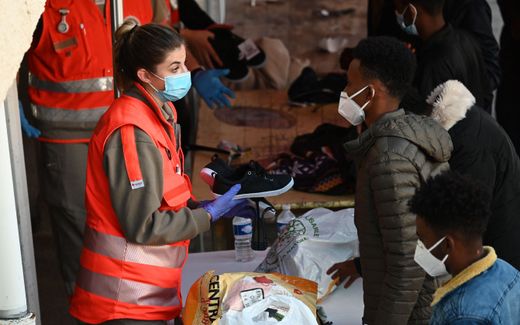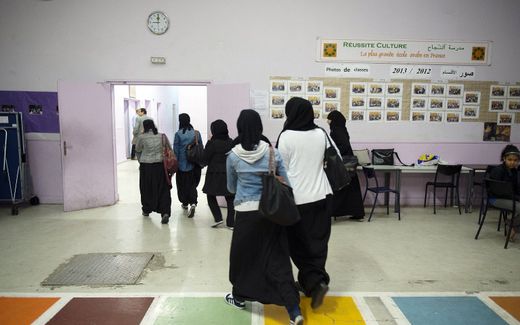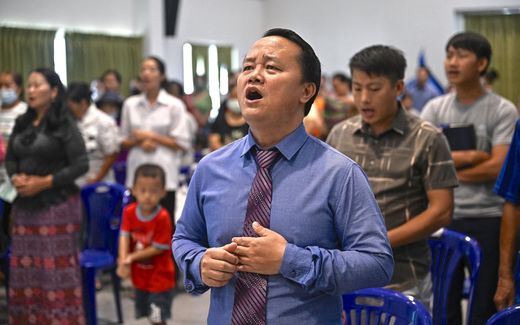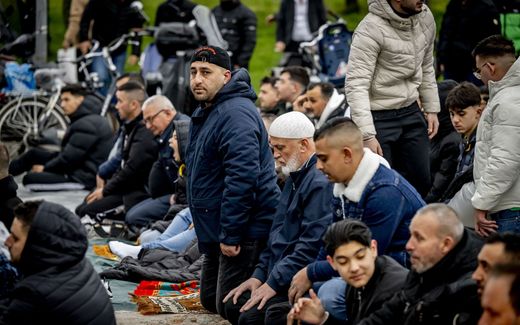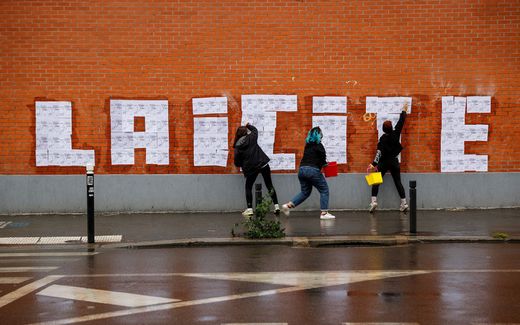Column from France: Tension in France between Jews and Muslims gives concern for European elections
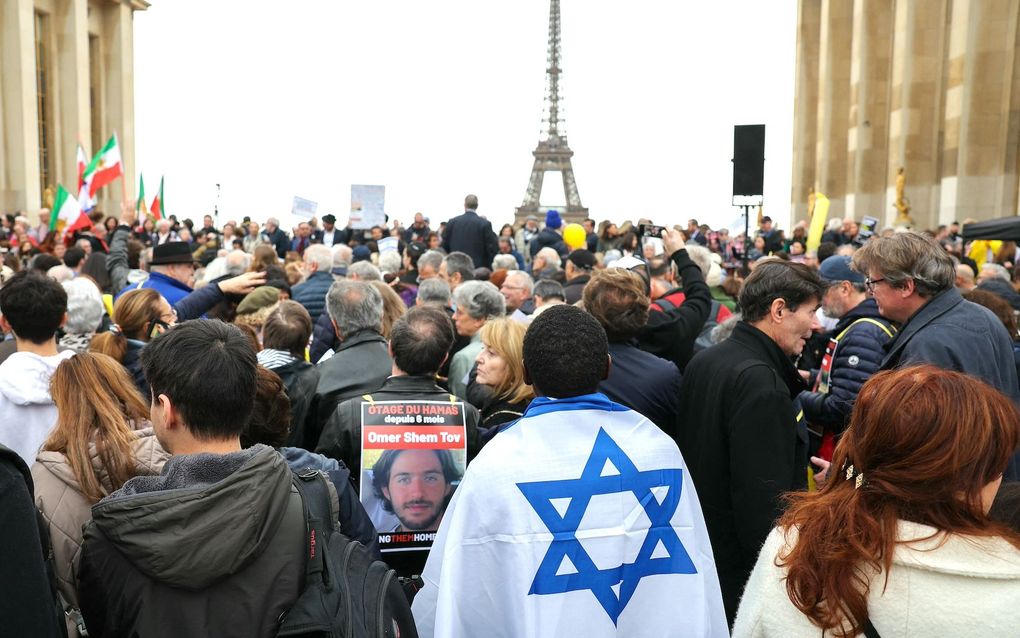
Protest against anti-Semitism in Paris, France. Photo AFP, Thomas Samson
Christian Life
No Iftar meal this year. We would have loved to have one with our Muslim neighbours, but the war in Gaza stirs up emotions. There is tension everywhere in France, our columnist Marc Derœux notices.
For several years, I have been a member of the Collectif Abraham de Massy, which works for peace and reconciliation in my town. This collective brings together the leaders of Massy's religious communities, namely the Synagogue, the Grand Mosque, the Catholic parishes and our Protestant Baptist Church.
Annually, on the occasion of Eid al-Fitr, the Muslim community of Massy extends an invitation to political and religious leaders to the Iftar evening, which marks the breaking of the Ramadan fast. This provides a valuable opportunity to maintain the cordial relations that prevail in Massy.
However, due to the circumstances in Gaza, this convivial evening was not held as it should have been on 10 April. The mosque leadership opted for caution, seeking to protect their members and to avoid provoking the Jewish community.
It is accurate to note that since the tragic events of 7 and 8 October 2023, our collective has been unable to facilitate exchanges between Muslims and Jews, despite the continued strength of our shared friendships.The same unease I perceive through the televised debates in France. On the one hand, Jews feel increasingly threatened. In 2023, there were 1,700 anti-Semitic incidents in the country, a figure that was quadrupled compared to 2022. The vast majority of these incidents occurred during the media coverage of the 7 October massacre.

A report published by the CRIF (Conseil représentatif des institutions juives de France) in January 2024 revealed that the number of anti-Semitic acts in the three months following the 7 October attack was equivalent to that of the previous three years combined.
Conversely, Muslims have expressed concern about being increasingly stigmatised. French Prime Minister Gabriel Attal's recent comments on "Islamic entryism" have provoked a strong reaction from the Paris Mosque, which is awaiting proof of this allegation. Furthermore, recent months have also seen an upsurge in departures by French Jews and Muslims alike.
The climate of tension and suspicion has also manifested in the context of the campaign for the European elections, scheduled to take place from 6 to 9 June. It is evident that the Palestinian question has the potential to mobilise a significant number of voters.
France's Jewish community is the third largest in the world, after Israel and the United States, and the largest in Europe, with an estimated population of around 500,000 (sources from the CRIF). About Muslims, a statistical report published in December 2023 estimated their numbers at over 5.4 million, making Islam the second-largest religion in France, after Christianity. It is, therefore, understandable that the electoral stakes with these populations are considerable.
It is also noteworthy that the migration issue is intertwined with the problem of the Middle East. Indeed, the fear of Islamisation has been at the heart of political debates in France in recent weeks, on television, in the newspapers, on the radio and in the streets too.The latest Eurobarometer, published by the European Commission at the end of 2023, revealed that nearly three out of ten people (28 per cent) questioned identified immigration as one of the two most significant challenges for the EU at the moment. This perception was mainly influenced by a prevailing sentiment of fear towards Arab countries, which the influence of far-right political parties has exacerbated. The war in Gaza has intensified the intensity and polarisation of this phenomenon.
A schism is emerging between those who support Israel and those who support Palestine, which is impeding constructive dialogue and undermining our society's capacity to coexist peacefully. The recent demonstrations at the Sorbonne, Sciences-Po, Lille, Paris, and elsewhere indicate this unease, which is intensifying in the lead-up to the European elections.
In my view, Christian communities have a significant role to play in alleviating these tensions. Welcoming foreigners is a duty for those who read both the Old and New Testaments.
Differences in race, culture and religion cannot negate the reality that every human being is, first and foremost, a creature of God, created in His image. Unconditional acceptance of Christ obliges us as Christians. We are called to encourage and propose a fruitful and positive dialogue.
This is the objective of the Massy initiative within the Collectif Abraham. Every individual can contribute by building bridges of reconciliation. This was the message conveyed by the World Evangelical Alliance in its declaration following the attacks in Israel in October.
The Holy Land has significance far beyond its borders because of its importance to followers of the Abrahamic religions worldwide. Jews, Christians and Muslims all have holy places in the Holy Land, and the desecration of places sacred to all three faiths has repeatedly contributed to the escalation of conflict.
We call on believers worldwide to pray for peace and understanding, emphasising that a just peace depends as much on deeds as on thoughts and words that promote peace.
Related Articles


